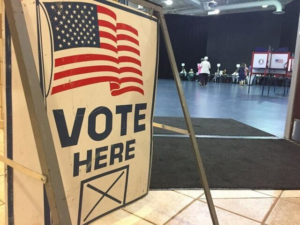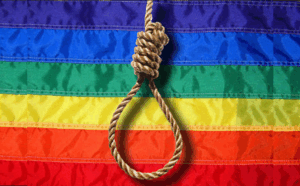
When I talk to people about lowering the voting age to 16 or lowering the drinking age to 18 they often say “Why the rush? Two or three years isn’t so long to wait.” Or they will respond, dismissively with, “You young people are always in such a hurry, just be patient, you’ll be an adult before you know it.”
They dismiss the whole idea of youth rights, since unlike the denial of rights based on race, or gender, or sexual orientation, denying rights on the basis of age is a temporary restriction. But an injustice doesn’t become acceptable just because it isn’t permanent.
If you were imprisoned for a crime you didn’t commit would you just shrug your shoulders and wait it out? I guess it depends on how long. Maybe if it was just a day or two in jail, you’d be upset but you wouldn’t organize a whole movement against it. If it were few years unjustly in jail that’d be a much bigger deal.
But what if you were in jail for half your life? What if your civil rights were denied for half your life? What if you were treated as a second class citizen for half your life? What if you had no say over the most basic elements of your life for half your life? It wouldn’t be so easy to dismiss it as a temporary injustice then.
Well, according to French philosopher Paul Janet, more than half of our life is over by age 18.
At least, that is how we perceive it. Time is relative and as we get older it feels like time passes faster and faster. A single year for an 18-year-old is 5.56% of their total life span to that point. For a 35-year-old a year is only 2.86% of their life, so it feels like it is passing twice as fast.
I am now 36 and this is very true for me. I’ll swear an event happened just a few weeks ago, but upon reflection I’ll realize it had been several months. I am a new parent and older parents tell me all the time to cherish my daughter now, because before I know it she will be going off to college. They are right. 18 years of her life will pass by quickly for me, for her grandparents, and for other adults around her. But for her it’ll seem to stretch on forever.
Which is why we can’t tell someone younger than us how long they should wait, or whether a restriction is or isn’t a big deal. Our perspective, even how we perceive time, is radically different.
Adults routinely mock teens who despair after losing a relationship that lasted for a year or two. “Get over it,” they say. “You’ll meet someone else,” they say. To teens it must feel like a millionaire mocking a poor person who lost $500. It isn’t much money to a millionaire, but it is incredibly important to someone who is struggling.
Our different perceptions of time affect our memories as well. Research has found that we remember things that happened between the ages of 15 and 25 more vividly than later experiences. That hurtful breakup, that cruel joke someone told about you at lunch, that amazing summer after sophomore year, those experiences have more of a lasting impact on us.
Our culture treats the experiences of young people as less important, when in reality they are more important. Our experiences and memories when we are young create our identity and build the story of our lives. So why do we dismiss the thoughts, feelings, and experiences of youth?
Because of ageism. Because to do otherwise is to admit the great impact that our ageist laws and attitudes have on youth – and indeed on all of us. And because we would admit that there is nothing temporary about the injustice young people face.






Spot on! Gosh, I rail against discrimination against the young all the time and I’ve never looked at things from this perspective. Thank you, and well done!
One of the most important human rights that I see being violated with youth is their right to self-determination. Schools typically allow students almost no meaningful decision making in matters that greatly affect them. The Alliance for Self-Directed Education (ASDE) is actively addressing this injustice and we need youth to become a visible part of its movement. Having mostly adults fighting for more just school systems contradicts the message that youth need to have more control over their lives. I encourage youth to visit the ASDE website and to consider how they might help to establish public schools that respect young people as being the equals of all other people. This is the link to the ASDE website: https://www.self-directed.org.
Thank you. We love the work ASDE is doing.